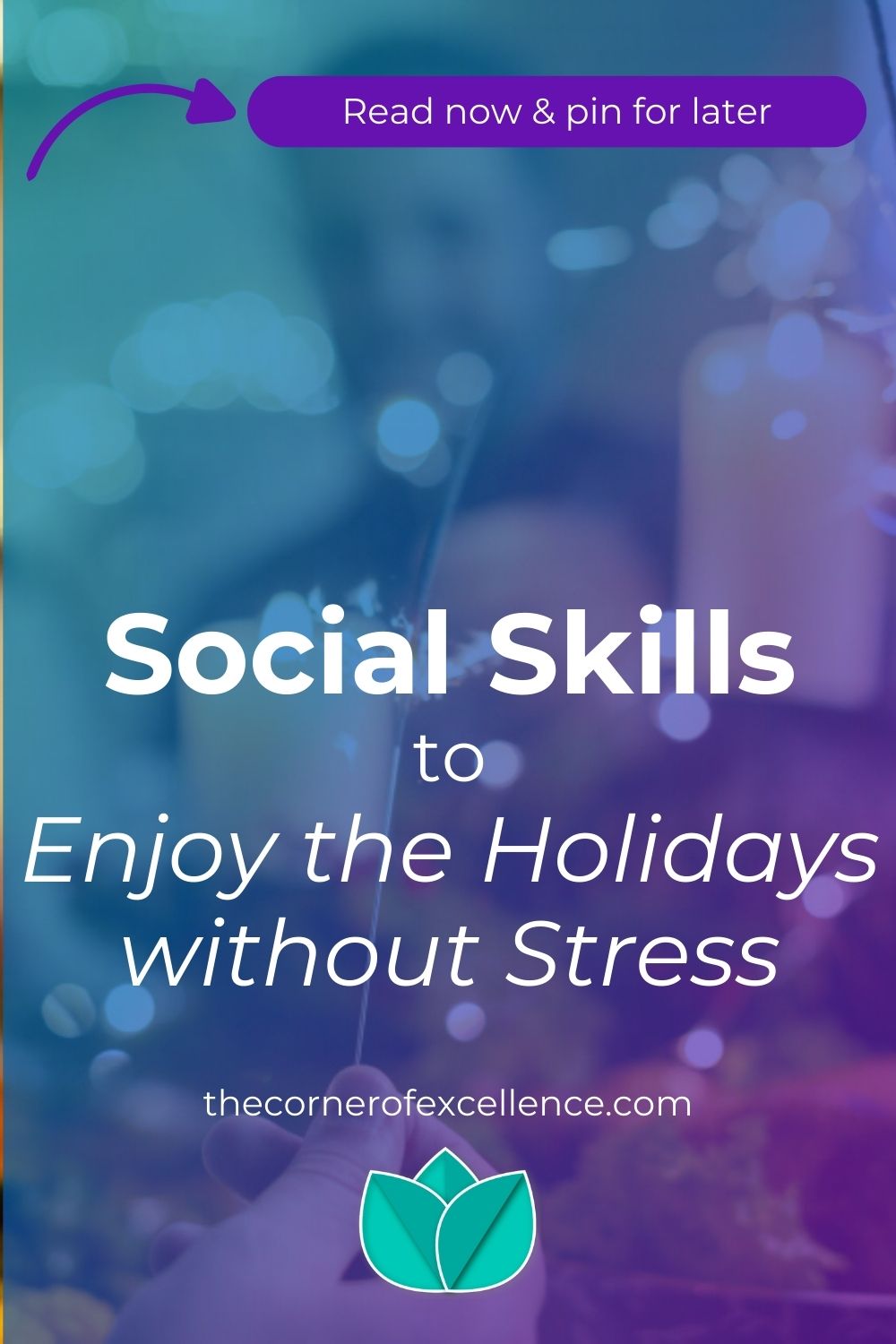
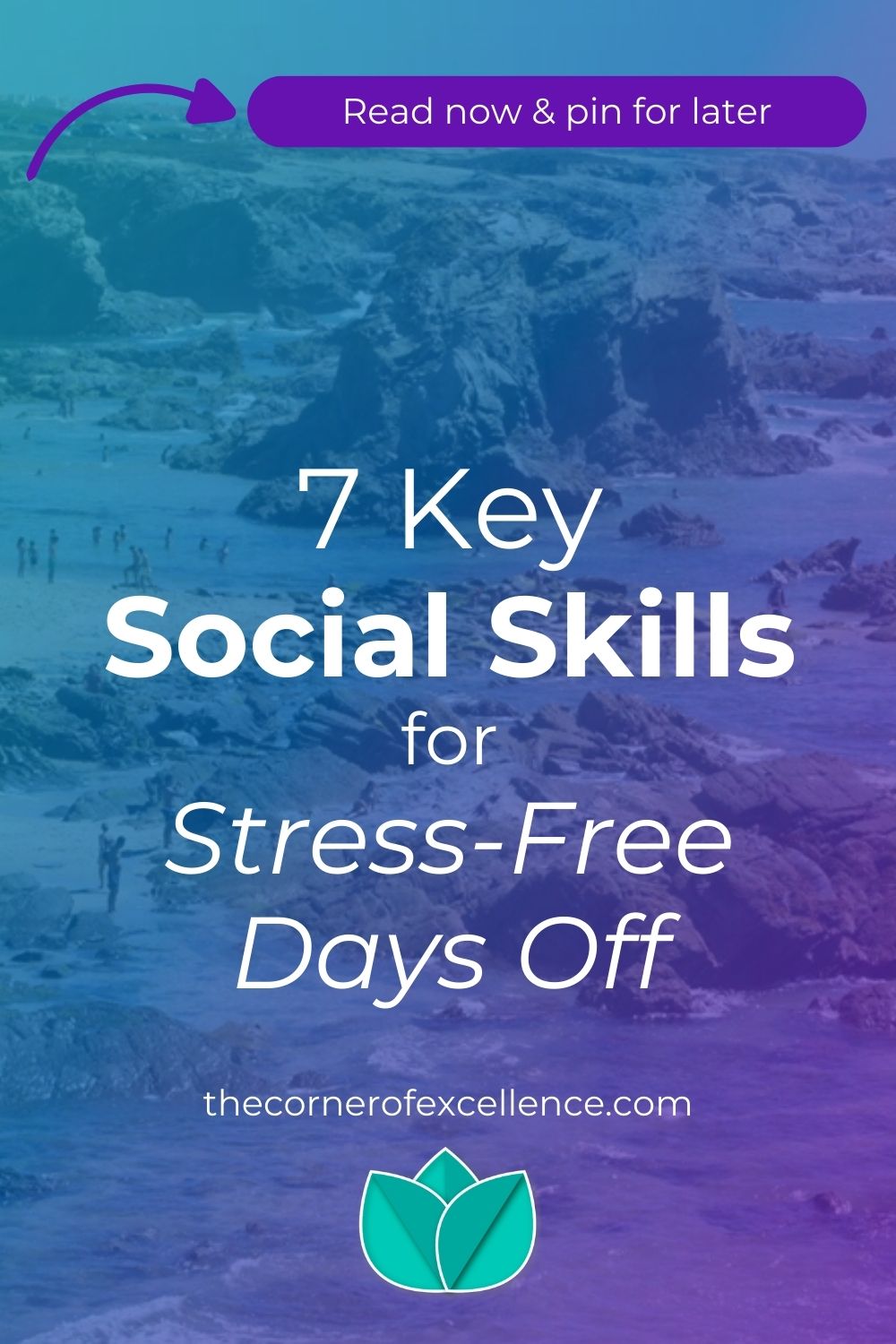
We all look forward with excitement to holidays and vacation. To a couple of days of relaxing from the work routine. To a few days to disconnect and recharge our batteries. It does not matter whether we stay at home and look for plans in our town or whether we travel somewhere. The holidays have become the paradigm of relaxation and enjoyment.
But the holidays can also try our patience. Because be they as a couple, as a family or with friends, we will spend many hours with other people, wanting to enjoy ourselves but at the same time having to respect others’ wishes and desires. So want it or not, this may lead to conflicts. Let us see which social skills help you avoid this.
More couples break up after holidays than any other time of the year
There is no statistical data about friendships breaking up after holidays, but there is about marriage break-ups. Did you know that in Great Britain 42% of divorces are filed after Christmas, becoming a New Year’s resolution? Then there is another increase in divorce petitions after summer holidays. I have not found data about the USA but articles talks about a similar phenomenon as in Great Britain.
In Spain and Germany, one out of three divorces are applied for after summer holidays. In Italy it even seems to be one out of two. There is another peak is in January after Christmas and New Year.
In the Southern hemisphere we have to take into account that the summer months are January and February. So for many, Christmas and New Year come together with the summer holidays. To give an example, in Argentina divorce petitions peak in March, seemingly triggered by the Christmas celebrations and New Year’s resolutions combined with the post-vacation syndrome.
It is clear that it is not the holidays’ or vacations’ fault. The problems and conflicts will have been dragged along for a longer time. But spending more hours together, the bustle of organising the holidays, the festivities, family celebrations etc. seem to become the last straw in some relationships.
But how can we avoid for this to happen to us?
Practicing emotional intelligence and our social skills. The following advice is not meant to fix more profound marital problems, but to avoid that holidays with family or friends rile us up or we end up making a mountain out of a molehill instead of enjoying and recharging our batteries.
The social skills to avoid unnecessary stress
1. Communication
It is important to create an environment of active listening in which we share what is our idea for ideal holidays and which plans we would like to make. We might take certain things for granted and not share what we feel like doing and what not during these holidays. Or maybe we have too high expectations, wanting to make up for the time lost. Wanting to do everything we do not have time for in the daily routine. That is why communication is one of the essential social skills. It allows us to compare expectations, avoid misunderstandings and reach an agreement.
2. Negotiation
We ought to respect the others’ opinions and reach win-win agreements for all parties. For example, one day we do what one person wants. On the next day what the other feels like. Or during the day we do different activities so there is something to everybody’s liking. In order for this to work, everybody has to share what they want to do. If you tend to saying yes to everything, or that you do not care, or what the majority wants, afterwards do not feel irritated if you do not like any of the activities.
3. Assertiveness
Communicate your thoughts and feelings. If you feel like doing something or you do not feel like it at all, say so assertively and clearly. Do not play the guessing game thinking “he should know what I want”, “she should know how I feel” and then get the sulks. This passive-aggressive behaviour will help neither the relationship nor yourself. So, do not wait for the other person to take out the crystal ball and guess what you are thinking or why you are cross.
4. Empathy
Empathy consists in understanding the feelings of others. Just like you want others to respect your feelings and opinions, remember to do the same with them. So do not get annoyed when the other does not feel like doing something. Rather figure out a way to reach a satisfactory agreement for both. Try to understand the other’s tastes and find a way to please each other.
5. Teamwork
Before, during and after the holidays, distribute the tasks. That way you will avoid that you or the other person feel like they are doing everything or that, instead of being on holidays, he or she is working.
6. Conflict resolution
Do not let conflicts ruin the holidays. It is normal that differences of opinions arise. But there are ways and means to discuss them. So avoid to arrive at discussions at the top of your voice.
Or maybe you dread direct confrontations. But in that case do not fall into the trap of keeping your discontent to yourself reacting like in the example I gave under assertiveness. Although you may have known each other for years, your partner, kid or friend do not know how to read your mind. But they will notice your discontent and ask themselves what is up with you.
So take a deep breath and comment serene and assertively what you feel, but without blaming the other. Nothing of the kind of “you drive me crazy when you do this” because remember that you choose how you feel about something or somebody. Also avoid totalitarian expressions like “you never help me” or “you always do this” which will only make the other person become defensive. Rather indicate what has bothered you based on facts.
7. Self-love
When you travel with family or friends, often the feeling arises that you have to do everything together 24 hours. But in our daily routine with work, school, family and domestic obligations we do not usually spend so many hours together.
So why not take some time for yourself. Discuss it openly with the others and reserve moments which everybody can dedicate to themselves doing what they like and feel like: sunbathing, reading a book, going for a walk, do one’s nails, play with the smartphone, meditate, practice yoga or whatever. After taking this time for yourself, you will certainly enjoy much more the group activities.
Getting back to reality
How many times have I heard the phrase “we will have to get back to reality” when holidays are drawing to an end. But the holidays are a part of the reality we live, so we cannot leave our social skills at home and need to apply them as the rest of the year when relating to other people, be it family, friends, acquaintances or strangers.
In order to make the best out of this reality and return from the holidays relaxed and rested, use your social skills. Communicate and negotiate assertively, solve conflicts, work as a team and take time for yourself.
Which social skills do you consider most important to enjoy your beloved ones and days off?
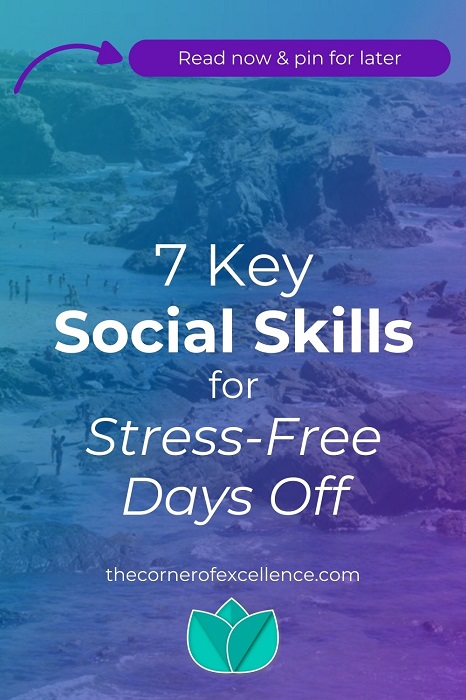
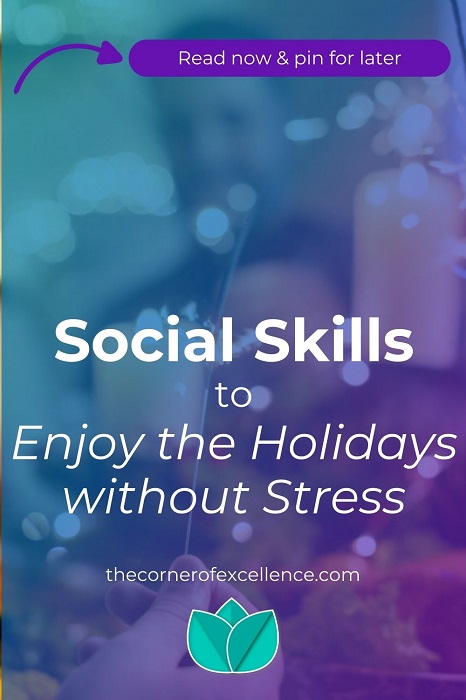
Sharing is caring!

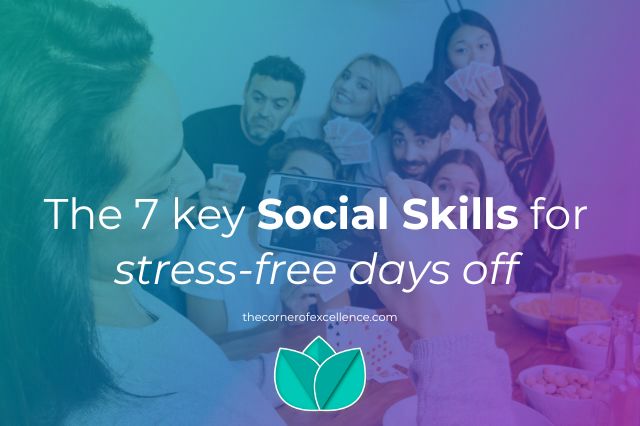




One Response
Great tips and essential at any time of the year. I particularly like your tips on self-love. You often do think you need to do everything together when with friends or family, but it can be a bit much so taking some time for yourself is great advice.